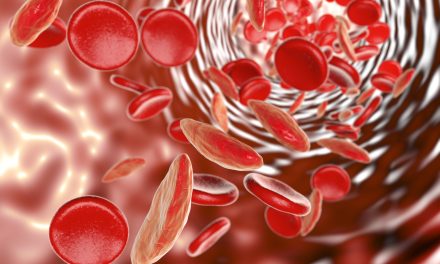Pernicious anemia is a type of vitamin B12 deficiency that occurs when the body is unable to absorb this vital nutrient from food. This condition can lead to a range of health issues if left untreated, including neurological problems and blood cell abnormalities. The body relies on vitamin B12 for various functions, including the production of DNA and the maintenance of nerve cells, so adequate detection and treatment are essential to prevent potential complications.
To manage pernicious anemia, it is important to understand both the nutritional and medical avenues for treatment. Patients often require lifelong supplementation with vitamin B12, usually in the form of injections or high-dose oral supplements, because their bodies cannot absorb it naturally from dietary sources. Addressing the disorder involves not only treating the vitamin deficiency but also making certain lifestyle adjustments, such as dietary changes and possibly adding nutritional supplements. Those with this condition should also be aware of the need for regular monitoring by healthcare professionals, as well as being informed about the risks and complications associated with the anemia.
Key Takeaways
- Pernicious anemia treatment includes lifelong vitamin B12 supplementation due to absorption issues.
- Lifestyle and dietary adjustments are necessary components of managing the condition.
- Continual monitoring by healthcare providers is crucial to prevent complications.
Understanding Pernicious Anemia
Pernicious anemia is a specific type of vitamin B12 deficiency that leads to reduced production of healthy red blood cells. Recognizing its causes, symptoms, and the criteria for diagnosis is vital.
Definition and Causes
Pernicious anemia is a condition where the body is unable to absorb vitamin B12 due to the lack of intrinsic factor, a protein produced by the stomach lining. This vitamin is essential for red blood cell formation. The primary causes include autoimmune disorders that attack the stomach cells making the intrinsic factor and certain genetic conditions.
Signs and Symptoms
Individuals with pernicious anemia may experience a range of symptoms that gradually develop over time. These include:
- Fatigue and weakness
- Pale or jaundiced skin
- Sensations of pins and needles (paresthesia)
- Difficulty walking (staggering, balance problems)
- A smooth, red tongue
- Changes in mood, like irritability and depression
Diagnosis Criteria
Diagnosing pernicious anemia involves a combination of laboratory and clinical findings:
- Complete Blood Count (CBC): To check for anemia.
- Vitamin B12 Level Test: Low levels are indicative.
- Anti-intrinsic Factor Antibodies Test: Presence of these antibodies may confirm the diagnosis.
- Methylmalonic Acid Test: Elevated levels can indicate a B12 deficiency.
- Pernicious Anemia-specific Tests: To differentiate from other types of B12 deficiency anemias.
Nutritional Foundations
Effective management of pernicious anemia involves addressing its underlying nutritional deficiencies and the factors that contribute to them.
Role of Vitamin B12
Vitamin B12, also known as cobalamin, is crucial for the production of red blood cells and the maintenance of nervous system health. Pernicious anemia often arises when the body lacks enough vitamin B12, resulting in reduced red blood cell formation. Patients typically require a lifelong regimen of vitamin B12 supplementation, which can be administered through intramuscular injections or high-dose oral supplements.
Sources of Vitamin B12:
- Animal products: meat, fish, poultry, eggs, milk
- Fortified foods: certain cereals and plant-based milk
Importance of Intrinsic Factor
The intrinsic factor is a protein secreted by the stomach lining that binds to vitamin B12 and enables its absorption in the small intestine. Pernicious anemia results when one’s body cannot produce enough intrinsic factor, leading to vitamin B12 deficiency. Treatment for this condition may involve addressing the underlying cause of the intrinsic factor deficiency, such as autoimmune disorders or gastric surgery.
Dietary Considerations
While dietary adjustments alone cannot correct pernicious anemia, they play a supportive role in managing the condition. Patients should consume B12-rich foods, especially if they have had their B12 absorption capacity partially restored through treatment.
Key Dietary Tips:
- Consume B12-fortified foods as part of a balanced diet.
- Monitor vitamin B12 levels regularly to adjust dietary intake as needed.
- Work with a dietitian to ensure nutritional needs are met, especially in cases of dietary restrictions like vegetarianism or veganism.
Medical Treatment Options
Effective management of pernicious anemia typically involves lifelong therapy to maintain normal levels of vitamin B12.
Vitamin B12 Injections
Patients with pernicious anemia are often prescribed vitamin B12 injections. These are usually hydroxocobalamin or cyanocobalamin, administered intramuscularly.
- Initial phase: They may receive injections every other day for two weeks or until their symptoms improve.
- Maintenance phase: The frequency is typically reduced to every 2-3 months.
Oral B12 Supplementation
When injections cannot be administered, high-dose oral B12 supplements are an alternative.
- Dosage: This can range from 500 to 2,000 micrograms per day, depending on the individual’s absorption capacity and levels of deficiency.
Nasal B12 Therapy
Nasal therapy is a less common but viable option.
- Application: B12 is administered through a nasal spray or gel.
- Frequency: This form of therapy is applied once a week and is convenient for those who are not comfortable with injections or have trouble with oral supplements.
Lifestyle Adjustments
While medical treatment is necessary for pernicious anemia, lifestyle adjustments can support treatment and improve overall health. These adjustments primarily focus on dietary modifications and managing comorbidities effectively.
Dietary Modifications
Pernicious anemia patients are often advised to incorporate foods rich in vitamin B12 into their diets since their bodies cannot absorb this essential nutrient adequately from food. Foods that are typically high in vitamin B12 include:
- Animal proteins: beef, liver, chicken, and fish
- Dairy products: milk, cheese, and yogurt
- Eggs
For vegetarians or those who do not consume animal products, fortified foods or supplements may be necessary. They should look for:
- Fortified cereals
- Plant-based milk alternatives: soy, almond, or rice milk fortified with B12
Regular monitoring of vitamin B12 levels is critical to ensure dietary changes meet the body’s needs.
Managing Comorbidities
Individuals with pernicious anemia often have other health conditions, which can be affected by or affect the treatment of their anemia. It’s important to:
- Manage chronic conditions such as diabetes or thyroid disease effectively, as they can influence B12 absorption and anemia severity.
- Avoid excessive alcohol consumption, which can impair B12 absorption and further exacerbate anemia.
- Quit smoking, as it can negatively impact overall health and may hinder the treatment of pernicious anemia.
- Coordinate with healthcare providers to adjust medications that might interfere with vitamin B12 absorption.
Monitoring and Ongoing Care
Effective treatment of pernicious anemia involves regular monitoring and ongoing care to manage the condition and prevent complications.
Regular Blood Testing
Patients with pernicious anemia require frequent blood tests to measure:
- Vitamin B12 levels: Ensuring levels return to and remain within the normal range.
- Complete blood count (CBC): To track improvements in red blood cell count and to monitor for anemia recurrence.
- Methylmalonic acid (MMA): Elevated levels can indicate a deficiency in B12 despite normal B12 levels.
Blood tests are typically recommended at intervals such as every few months following the start of treatment, then yearly once stabilized.
Long-term Management Strategies
Managing pernicious anemia is a lifelong commitment involving:
- Maintaining B12 supplementation: Regular injections of vitamin B12 are the standard course. Some patients may transition to high dose oral B12 if injections are not feasible.
- Dietary adjustments: Incorporating B12-rich foods, such as fish, meat, eggs, and dairy products, can support B12 levels.
- Monitoring for complications: Since pernicious anemia can increase the risk of gastric cancer and other stomach and intestine issues, endoscopic examinations may be recommended periodically.
Patients should follow their healthcare provider’s plan for ongoing care to ensure the best outcomes.
Complications and Risks
Pernicious anemia, if left untreated, leads to multiple health complications. Timely diagnosis and treatment are crucial to minimize these risks.
Neurological Complications
Neurological issues that may arise include memory loss, neuropathy, and difficulty with balance. Pernicious anemia can cause severe and irreversible damage to the nervous system.
- Memory loss
- Difficulty with coordination and balance
- Peripheral neuropathy (numbness and tingling in hands and feet)
Cardiovascular Issues
Pernicious anemia can result in elevated levels of homocysteine, leading to increased risk of heart disease and stroke. It can also cause heart palpitations and shortness of breath.
- Increased risk of heart disease and stroke
- Heart palpitations
- Shortness of breath
Gastrointestinal Concerns
The condition may lead to atrophy of stomach lining and gastric polyps. These changes can cause gastrointestinal discomfort and possibly an increased risk of gastric cancer.
- Atrophy of stomach lining (gastric atrophy)
- Stomach polyps
- Potential increased risk of gastric cancer
Pediatric Considerations
Pernicious anemia in children is rare and presents unique diagnostic and treatment challenges. Early detection and tailored treatments are critical for managing this condition effectively in pediatric patients.
Detecting Pernicious Anemia in Children
Pediatric pernicious anemia often manifests with nonspecific symptoms which may include fatigue, weakness, and pallor. A thorough medical history and a physical examination are essential for early identification. Key diagnostic tests include:
- Complete Blood Count (CBC): It typically shows a low red blood cell count, high mean corpuscular volume (MCV), and low hemoglobin.
- Serum Vitamin B12 Levels: Low levels suggest a deficiency.
- Methylmalonic Acid (MMA): Elevated in vitamin B12 deficiency.
- Intrinsic Factor Antibodies: Their presence may indicate pernicious anemia.
Treatment Approaches for Children
The treatment of pediatric pernicious anemia involves lifelong management and includes:
- Vitamin B12 Injections: Initially administered frequently and then may transition to less frequent dosing based on blood levels and clinical response.
- Oral Vitamin B12 Supplementation: An alternative to injections, especially in older children who can tolerate oral medication.
- Dietary Modifications: Introduction of vitamin B12-rich foods such as meat, eggs, and dairy products into the diet.
Children typically respond well to vitamin B12 therapy, but they require ongoing monitoring to adjust treatment and prevent relapse. Regular follow-up with healthcare providers is imperative to monitor growth, development, and to ensure adequate vitamin B12 levels.
Pregnancy-Related Concerns
In pregnant women, pernicious anemia must be managed carefully to safeguard both maternal health and fetal development.
Effects on Pregnancy
Pregnancy can exacerbate pernicious anemia due to increased nutritional demands. Unmanaged, it may lead to complications such as:
- Neural Tube Defects: Inadequate B12 levels can impair fetal brain and spine development.
- Preterm Labor: Women with untreated pernicious anemia have a higher risk of going into labor prematurely.
- Low Birth Weight: The condition can result in delivering a baby with a lower than average birth weight.
Management During Pregnancy
Proactive management is key for a healthy pregnancy. The strategies include:
- Regular Monitoring: Health professionals should check B12 levels and complete blood counts throughout pregnancy.
- B12 Supplementation: Injectable or high-dose oral B12 is often prescribed to maintain adequate levels.
- Dietary Guidance: Registered dietitians may provide individualized meal plans rich in vitamin B12.
Maintaining therapeutic B12 levels is crucial to prevent developmental issues in the fetus and health complications for the mother.
Advancements in Treatment
Recent years have witnessed significant strides in the treatment of pernicious anemia, with a focus on both improved traditional therapies and groundbreaking research.
Research on Alternative Therapies
Scientists are investigating alternative oral therapies that might offer efficiency and ease of use compared to traditional intramuscular vitamin B12 injections. These alternatives include high-dose oral supplements and nasal sprays, which aim to improve absorption rates and patient compliance. Several clinical trials have demonstrated that high oral doses of B12 can be effective for many patients, potentially revolutionizing the management strategy of pernicious anemia.
Genetic Studies and Pernicious Anemia
Recent genetic studies are shedding light on the hereditary aspects of pernicious anemia. Researchers are identifying specific genetic markers that may predispose individuals to the disease, with the hope of developing targeted treatments. This includes the study of the intrinsic factor and gastric parietal cells, which play critical roles in vitamin B12 absorption. They are exploring gene therapies that could rectify the autoimmune responses which lead to the condition.
Support and Resources
Managing pernicious anemia involves not only medical treatments but also accessing a broad network of support and resources. These include patient support groups for shared experiences and educational materials for better disease understanding.
Patient Support Groups
Patient support groups play a critical role in providing psychosocial support to individuals with pernicious anemia. They offer a forum for patients to share their experiences, coping strategies, and practical advice. Examples of support groups include:
- Local Health Clinics: Many clinics host support group meetings, providing a space for patients to connect in person.
- Online Communities: Websites such as HealthUnlocked or DailyStrength offer online support groups that allow for anonymous, remote participation.
Educational Materials and Outreach
Educational materials and outreach programs help patients and their families understand pernicious anemia and its management.
- Materials from Healthcare Providers: Doctors and nurses can provide pamphlets and informational sheets that explain the condition, treatment options, and dietary recommendations.
- National Health Organizations: Organizations such as the National Heart, Lung, and Blood Institute (NHLBI) or the Pernicious Anaemia Society offer extensive outreach programs and educational materials on their websites.
Frequently Asked Questions
This section addresses some of the most pressing inquiries related to pernicious anemia, from treatment options to the long-term implications of the disorder.
What treatment options are most effective for managing pernicious anemia?
The most effective treatment for pernicious anemia typically involves regular injections of vitamin B12, which can be administered daily, weekly, or monthly depending on the severity of the condition. High-dose oral B12 supplements may also be prescribed for some patients.
Can individuals with pernicious anemia expect a normal life expectancy?
With proper treatment and management of vitamin B12 levels, individuals with pernicious anemia can often expect a normal life expectancy. Regular monitoring and maintenance therapy are necessary to prevent complications.
What are the neurological implications of untreated pernicious anemia?
Untreated pernicious anemia can lead to serious neurological complications, such as peripheral neuropathy, memory problems, and difficulty with balance. Over time, these issues can become irreversible.
What is the relationship between autoimmune disorders and the onset of pernicious anemia?
Pernicious anemia is frequently associated with autoimmune processes where the body mistakenly attacks the cells in the stomach responsible for producing intrinsic factor, a protein essential for B12 absorption.
How does heredity influence the risk of developing pernicious anemia?
A familial predisposition can increase the risk of developing pernicious anemia. Specific genes related to the immune system may play a role in this inherited susceptibility.
In the context of pernicious anemia, why is intrinsic factor so important?
Intrinsic factor is crucial because it binds to vitamin B12 and facilitates its absorption in the small intestine. Without intrinsic factor, which is lacking in individuals with pernicious anemia, vitamin B12 cannot be properly absorbed, leading to deficiency.
Conclusion
In conclusion, effective treatment strategies for pernicious anemia involve addressing the underlying cause, which is often related to vitamin B12 deficiency. Treatment typically includes regular vitamin B12 injections or high-dose oral supplements to replenish B12 levels. Additionally, close monitoring by healthcare professionals is essential to ensure the effectiveness of the treatment and overall management of pernicious anemia. Seeking medical advice and adhering to a personalized treatment plan are crucial steps in effectively managing this condition.





















